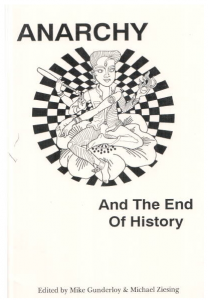My rating: 4 of 5 stars
1964, Berlin, Greater German Empire. A week from Adolf Hitler’s 75th birthday. No-one remembers what Germany was like before the war. What does it matter? The Führer is God, he saved Germany from mortal danger and raised her to become the world’s mightiest. All follow the Leader completely blindly, a Goebbelsian utopia come true. All? Gestapo officer Xavier “Zavi” March is the right man, at the right place, at the right time, and is about to catch a glimpse of the Third Reich’s best kept and most horrible secret…
1964 Nazi Berlin is very convincing. World politics following a Nazi victory in the War also make the mood for this alternate history fittingly gloomy. Albert Speer’s Germania plans for Berlin have all come to pass, including the awe-inspiring Great Hall. An illustration of the book’s timeline’s central Berlin welcomes the reader right at the beginning of the book setting up the climate quite “appropriately”.
Xavier March is a burdened man. His son, a result of his failed marriage, looks to the regime for a father figure instead of him. He’s been working for 10 years as a successful Sturmbannführer but with no promotion. “The Fox”, his work nickname, is a great lead character. He’s surprisingly clever (he’s an investigator and this is a thriller, after all!) but his weaknesses and mistakes are easy to spot throughout the story, grounding him and making him a realistic lead. I was rooting for him all the way.
A thing I liked about Fatherland and Robert Harris’s writing is that it had little details that made it easier to imagine each scene or situation. Insignificant descriptions, like the way some-one breathes or what he or she looks like while walking away, associations March makes with things he notices, hears, touches or smells give the story a much more personal feel, it makes it easier to identify with the –thankfully, unknown for us– circumstances. I could really feel as if I was actually there, as if I was — shudder– March myself .
The plot can be a bit confusing at first, reflecting the lead’s own confusion with the case of the murder by Lake Havel, but as it thickens, as no-one you think could be trusted comes through, as some things become apparent and others come as shocking revelations and turnarounds, everything is made clear and fits well. It took me maybe three weeks to read the first half of the book. I don’t have great experience with police mysteries, but this is more than that. It took me another three days to finish it. This should tell all.











